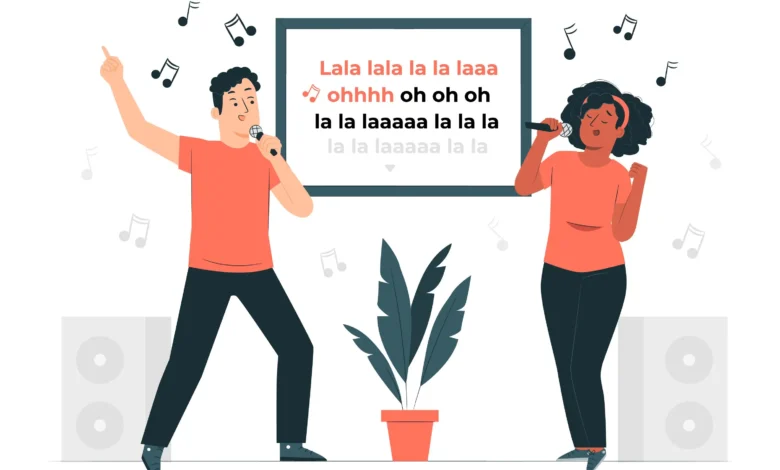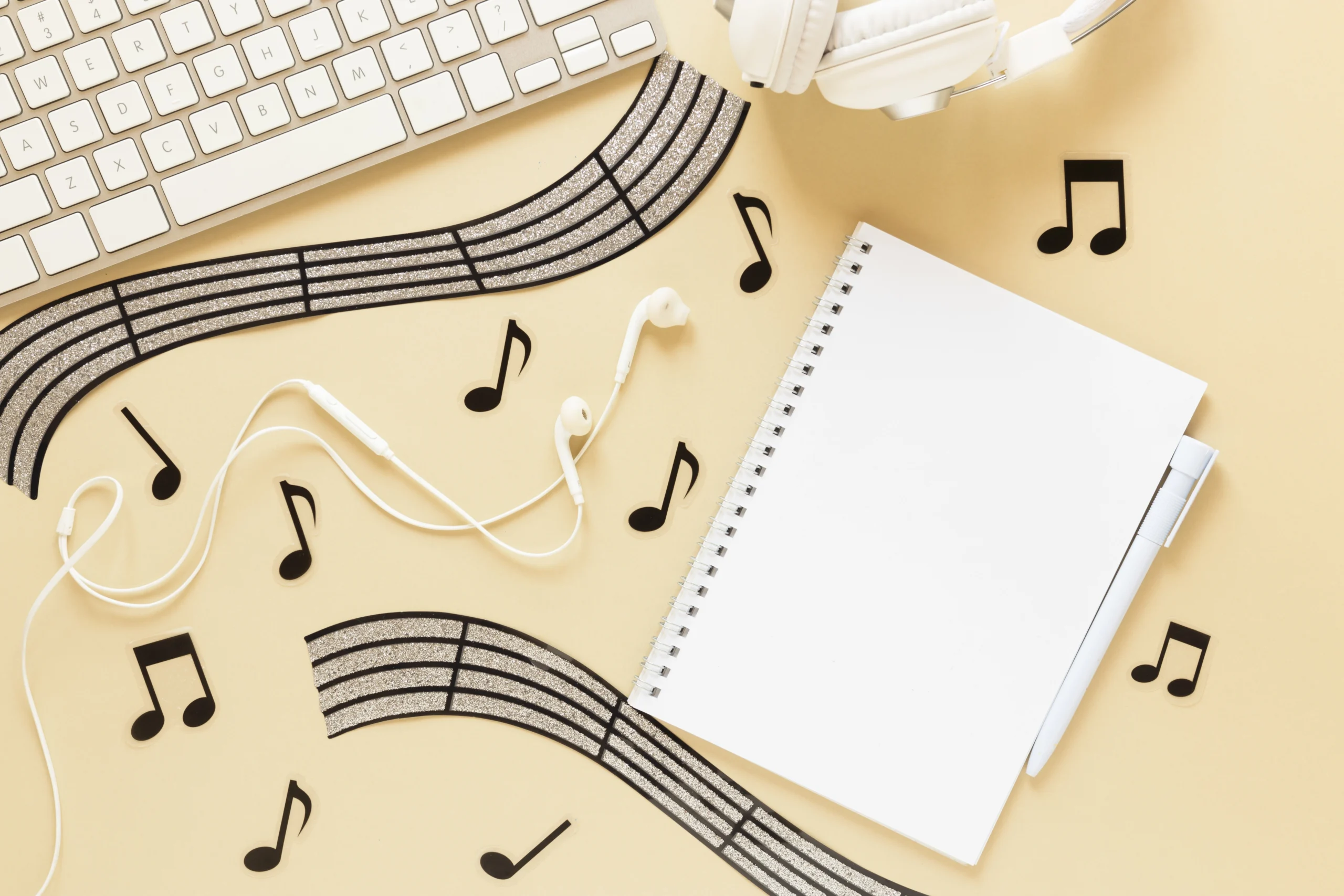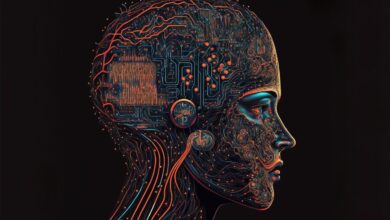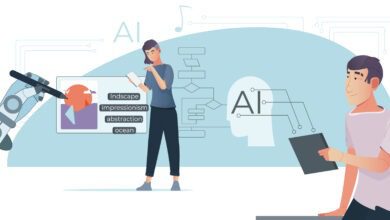
How To Turn Lmy Yrics Into A Song Using AI (My Lyrics)
Suppose you have just composed a piece that you deem to be the next hit. The words are very fitting, the phrases rhyme to perfection, and there is something magical about it. There’s just one problem: you will still be unable to sing. Or perhaps you can sing, yet you cannot accompany yourself on an instrument. Or maybe it is possible to do both but with the organization skills of a cat chasing a laser pointer on a tile floor. So, let’s welcome a new best friend – AI – in the world of music production. In this article we will explore how to create turn lmy yrics into a song using AI.
AI: Your Tech-Savvy Songwriting Partner

The days when a person had to be a virtuoso to turn the poetical ideas into the favorite song are gone. All that is required today is a reasonably good connection to the Internet and some belief in the future.
There you go now the art of artificial intelligence is at its best, do you want an AI to make the tune for you lyrics? Indeed, one could think of it as the everlasting, non-critical band member who you can always turn to for support.
Step 1: Choose Your AI Tool
There are a lot of applications focused on the generation of music from text and they are numerous. Some are complex such as a digital composer that only requires the user to input a few commands. Some are more complicated, employing features of deep learning to deconstruct musical trends and then ‘create’ music that seems like it was engineered by a music studio, popular music in this case being Billboard quality.
Some of the most well-known examples at the present time as MuseNet by OpenAI, Magenta by Google, or Amper Music. Every one possess its own peculiarities and settings, so it may be useful to try and find out which one you are most comfortable with.
Step 2: Input Your Lyrics
This is where the fun begins. You get to witness your words shaped in forms you probably could not fathom in your wildest dreams. When using most of the AI tools, you’ll be presented with a text box where you paste your lyrics. Some of these may allow you to select a specific genre or even particular instruments that you want to be used.
Pro tip: Do not be very lyrical with your songs, and try to make them as simple as possible. Although AI is intelligent, it may not have the ability to understand mere poetic interpretations of a concept. Be simple and the result is likely to bring a consistent image.
Step 3: Customize the Output
As for the tool , you might have different options of the customization. What about a funky tune with a great saxophone break? Perhaps you’re in the mood for some country today?
Most of these tools allow one to choose the style, speed as well as the feeling of the song. Experiment with the parameters. This is your opportunity to become a musical mastermind
Step 4: Generate and Review
At last, the day of reckoning has arrived. Go ahead and hit that ‘generate’ button and let the AI do its thing. Within a few moments, you will have a brand new song. A lot like making cookies but without the aftermath on the kitchen floor. Once the song is complete, play it. Do not expect to get things right the first time round. At times, what the AI produces could sound like a robotic personality going haywire. Change the settings, modify the lyrics, and have another shot at it.
The Perks and Quirks of AI Music Creation
However, it’s noteworthy that AI is a great asset, but it does come with some peculiarities. Here are a few things to keep in mind:
1. Emotion: Superficiality is another area where AI lacks the ability to respond as humans do, Even an AI can say the appropriate things to show some emotion, it cannot really feel it. I mean the song of yours could look technically fine but lacks that human feeling to it.
2. Originality: AI is excellent at producing unique music if the style is common to listeners’ previous experiences. Still, if you want to make sure that your case is different and non- templates, you might have to work on the addition of something personal.
3. Learning Curve: Certain tools being used are easier to use than others. Remember, it is not uncommon to take some time getting use to certain assignments or projects.
A Few AI Tools to Consider
Let’s take a closer look at some of the top AI music creation tools out there.
OpenAI’s MuseNet
Hence, MuseNet is an AI music tool that can be dealt with the description as the Swiss knife. It can create songs of different styles, and, moreover, it can combine genres. If you would like music that is more like classical but with a hint of rock, here is a recipe to help you out. MuseNet’s got you covered. It is easy to handle and actually generates good quality of music and thus can be used as a beginner device.
Google’s Magenta
Magenta primarily revolves around machine learning as one of the in-application tools in creating art. Yeah, it is halting, but it is not as simple as that; there are many options that come with it. It can be used to produce all sorts of music proper from simple tunes and riffs to harder conveying pieces. If you are a technological freak and an adventurer then Magenta is perfect for the job.
Amper Music
It must be added that Amper is very easy to work with. Best suited for those who desire to produce music without having to deal with the minor specifics of its production. You feed it with your lyrics, select your wanted style, and Amper will do the rest for you. It is like a music companion; who will guide you and suggest you the music you should listen to.
The Future of AI in Music
AI is changing the way we create and interact with music. It’s not just a tool for hobbyists; professional musicians and producers are using AI to push the boundaries of what’s possible. The future might bring even more advanced tools, capable of understanding and mimicking the subtleties of human emotion and creativity.
Embrace the Tech, Keep the Heart
Some of your lyrics transformed into a song, but don’t forget it, AI is here to help you, but the soul of music remains with you. Artificial intelligence is yet another instrument that could assist in the creative process, but is not in any way an equal to the human mind. Utilize it to improve your work, but never for the sake of losing yourself in other people’s words or ideas.
A Few Final Tips
1. Experiment: Don’t be afraid to try different tools and settings. Creativity often comes from experimentation.
2. Learn: Take some time to understand how these tools work. The more you know, the better your results will be.
3. Have Fun: Music is all about expression and joy. Enjoy the process and let your creativity flow.
Conclusion
Transforming your lyrics into a song with the help of AI is great and easy to start if you are eager to create a musical. It just requires the right equipment and a little time; then one can come up with something great. Thus, stop hesitating, it’s time to try , and let’s see what will happen next. Perhaps you can come up with the next sensational hit.
Frequent Asked Questions
Can AI really make a good song from my lyrics?
Yes! AI can turn your lyrics into good songs by using patterns from existing music. It might need some tweaks, but it works well.
Do I need to know music to use AI tools?
No. AI music tools are made to be easy for everyone. Just enter your lyrics and choose some settings.
Are there any costs for using AI music tools?
Some tools are free, but advanced features might cost money. Check the tool’s pricing details.
Can AI create songs in all music styles?
Yes, AI can make songs in many genres like rock, pop, jazz, and more. Choose a tool that fits your style.
Will the AI song be completely original?
AI songs are based on existing music patterns, so they might sound familiar. Use AI as a start and add your personal touch for uniqueness.



